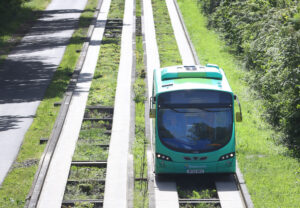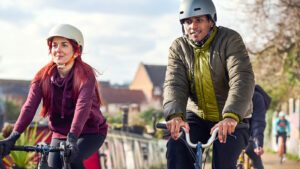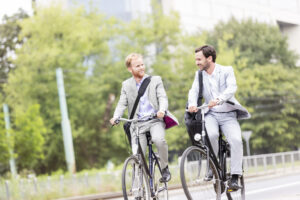A new report produced by national walking and cycling charity Sustrans shows that participation in active travel is still high in Greater Cambridge.
It also revealed strong public support for further measures that encourage walking, wheeling and cycling.
Sustrans England director Midlands and East, Clare Maltby, said: “Greater Cambridge is cleaner and healthier because it is committed to enabling active travel. The statistics show that enabling active travel is helping to prevent 827 serious long-term health conditions and 120 early deaths every year. That’s equivalent to savings of £5.4million or 180,000 GP appointments, reports the Cambridge Independent.
A total of 1,296 residents aged 16 or above were surveyed for the Walking and Cycling Index to explore their attitudes towards walking and cycling in Greater Cambridge.
The data was collected between June and August 2021 and gives an insight into the area’s travel habits as it emerged from lockdown. It shows a drop in the number of individuals using all modes of transport five days a week, with walking the only exception. That increased from 50 per cent in 2019 to 54 per cent in 2021.
Cycling remains a very popular way to travel with nearly half (45 per cent) of all residents riding a bike at least once a week.
The survey also found eight in 10 people (81 per cent) supported the creation of more 20-minute neighbourhoods and almost three-quarters (74 per cent) supported the creation of more cycle tracks along roads physically separated from traffic and pedestrians, said the report.
Seven out of 10 (71 per cent) residents felt that wider pavements would help them to walk or wheel more. However, participation in walking and wheeling – the use of wheelchairs and mobility scooters – is not equal. Of those that do cycle at least once a week, more men (50 per cent) are cycling than women (40 per cent). There is also a disparity between AB, the highest socio-economic group (50 per cent) and DE, the lowest socio-economic group (36 per cent). Some residents (15 per cent) do not cycle but would like to and almost a quarter of people (24 per cent) from ethnic minorities currently do not cycle but would like to.
Cllr Elisa Meschini, the deputy leader of Cambridgeshire County Council and chair of the Greater Cambridge Partnership executive board, said: “With thousands of additional car journeys expected on our roads every day over the next decade we need to do more, and so that’s why we’re continuing to invest in our active travel network to encourage even more people to get out of their cars.”























